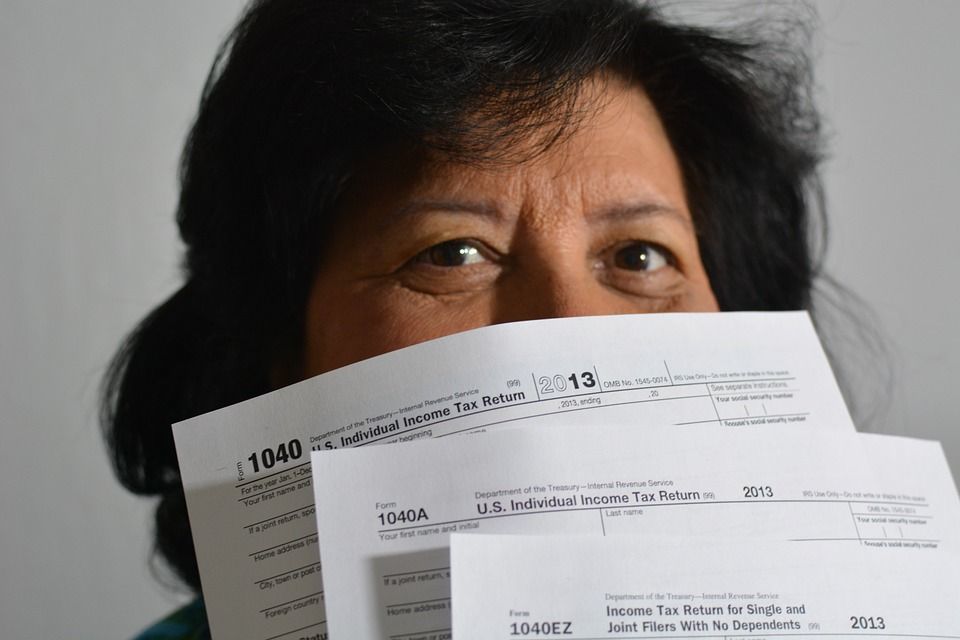People who have purchased their first home are usually elated that they own a prime piece of real estate. Later, when their first tax season as homeowners rolls in, they realize (and celebrate!) the full impact of their new tax benefits. What are the tax benefits of owning real estate?
Deduction in Mortgage Interests
If you have taken out a loan in order to purchase your house, you will notice that majority of your monthly check payments go to the interest alone.
If your loan is less than $1 million, your entire mortgage interest is tax deductible. You may also get a tax deduction if your home is situated in a location with a high median home value.
Let’s look at the following example of a homeowner who falls within the 28 percent tax bracket: He purchased an $800,000 house with a down payment of 20 percent and a mortgage of $640,000 at 5 percent.
To calculate the mortgage interest deduction, you get 5 percent of $640,000 which will amount to $32,000.
Next, you get 28 percent of $32,000, which will give you a mortgage interest deduction of $8,960 during your first year of homeownership.
Here is the complete computation:
PRICE OF THE HOUSE: $800,000
DOWN PAYMENT OF 20%: $800,000 x 0.2 = $160,000
FULL COST OF MORTGAGE: $800,000 – $160,000 = $640,000
MORTGAGE INTEREST DEDUCTION:
1) $640,000 x *0.5 [*5%] = $32,000
2) $32,000 x *0.28 [remember homeowner is in the 28% tax bracket] = $8,960
Please note though that mortgage interest may change monthly as a result of principal reduction.
So it is advised that you use an online mortgage calculator with the amortization schedule programmed into it in order to get a more accurate ballpark figure. Please contact your tax advisor for the details of your specific situation.
Additional Tax Breaks
You can get additional tax breaks aside from your mortgage interest. Refinancing or a home equity line of credit (HELOCs) of $100,000 or less is fully deductible.
You can also get a full deduction on the mortgage interest of your second home and/or additional properties, such as an RV or boat with bedrooms, kitchens, and baths.
Even if you rent it out, you can avail of the full deduction. The one condition that you have to follow though is that you need to stay in the second property for at least 14 days or more than 10 percent the number of days that you will be renting it out to someone.

Home Mortgage Points
Home mortgage points refer to prepaid interest and other charges which are paid in order to get a home mortgage.
These points may be deductible as a mortgage interest if you itemize your deductions using Form 1040, Schedule A, Itemized Deductions.
It is also required that your primary home was used to secure the loan, that points payments are an established business practice in your area, and the points were not paid for other items, like attorney fees, property taxes, etc., among a number of requirements.
Tax breaks are also available for homeowners who used their points on refinanced loans. However, these points are deducted throughout the life of a loan.
Let’s say you paid $5,000 in points for refinancing of your mortgage over a period of 25 years. You will be paying $200 in a year or $16.66 monthly in one year of your new loan.
Again, let’s underline that points must be used for your property in order for it to be fully deductible. If it is not used on your real estate, no deductions can be made.
Tax Exempted Profits made from the Sale of a Home
If a homeowner is selling his/her home, they are entitled to tax exemptions depending upon their civil status. Single sellers can expect $250,000 in tax exemption from the profits made from the sale of his/her home.
In contrast, married sellers will get a $500,000 exemption from the profits.
To avail of this exemption, you should have resided in the home for at least two out of the five years prior to the sale.
This exemption can be availed of once every two years. It can be useful for buying a new home, especially one that is smaller or located in an area of lower property value.
Property Taxes
Depending on how your loan is structured, property taxes may comprise a large part of your monthly loan payments. These taxes are placed in an escrow account for yearly payment.
When you receive the annual loan statement from your lending company, this amount should be clearly stated. For as long as the home is yours, you must pay these property taxes.
For those who are in their house’s first tax year, make sure that you check your tax payment data in your settlement sheet.
With transfer of ownership from the seller to the buyer, the property tax for the year was divided so that each party pays a prorated portion of the tax based on the period of time that they each owned the home.
The buyer’s share is fully deductible.

Depreciation
Depreciation is defined as the deduction in value of real estate and major improvements to the same property in the course of their lifetimes. This particular tax break is especially useful for rental property owners.
First, check the IRS website or inquire with your local IRS office for their figures on the useful life of various building classes and corresponding improvements. Use these figures to determine your tax deduction based on depreciation annually.
For example, let’s say that your apartment has a projected useful life of 30 years. If your apartment costs $800,000, your yearly deduction from your apartment’s income is $26,666 ($800,000 divided by 30 years).
Tax Breaks Due to Unforeseen Circumstances
In order to achieve tax breaks on real estate from the IRS, you need to meet residency and ownership requirements as put forth by the IRS before you sell the property.
If the property sale is prompted by unforeseen circumstances, such as death, divorce or legal separation, job loss, employment changes, and multiple births in a single pregnancy, you may be able to prorate tax-free gain value.
Be sure to talk with your tax advisor for professional guidance on each of these points to learn if any of this info applies to your tax situation. Good luck!

